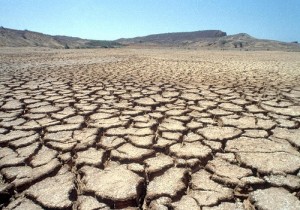 The focus of the United Nations Framework Convention on Climate Change (UNFCCC) originally was the reduction of greenhouse gas emissions, as well as emissions associated with land-use change and forestry. However, by the 2000s scientists and policymakers realized that emissions targets were too low to avoid serious negative impacts, necessitating the development of adaptation responses as a complement to mitigation.
The focus of the United Nations Framework Convention on Climate Change (UNFCCC) originally was the reduction of greenhouse gas emissions, as well as emissions associated with land-use change and forestry. However, by the 2000s scientists and policymakers realized that emissions targets were too low to avoid serious negative impacts, necessitating the development of adaptation responses as a complement to mitigation.
In the past few years, it has become clear that historical emissions have “locked in” a certain level of climatic change, making some serious impacts unavoidable. Moreover, the feckless response of the world in arresting emissions makes even graver unavoidable impacts likely. These “residual” impacts, over and above what can be addressed through mitigation and adaptation are termed “loss and damage.” Loss and damages include those related to extreme events, such as heatwaves, flooding, and drought, as well as so-called slow-onset events, such as rising sea levels. The potential direct costs of loss and damage will be huge. For example, UNEP estimated that loss and damage will cost twice as much as costs associated with adaptation across Africa in the next century.
While there have been international calls to address loss and damage, only recently have the Parties engaged in earnest on the issue. Following two years of deliberations, the UNFCCC established the Warsaw International Mechanism for Loss and Damage associated with Climate Change Impacts, as the main vehicle to address loss and damage. The Mechanism calls for efforts to address gaps in understanding, initiatives to foster collaboration among stakeholders, and facilitation of efforts to mobilize finance, technology and capacity-building. It also establishes an Executive Committee to implement the Warsaw International Mechanism.
However, questions remain about the ultimate vision for the loss and damage mechanism. While a number of developing countries believe that the mechanism should focus on reducing risks associated with climate change, many also advocate that it should establish the foundation for responsibility for climate damages. This could pave the way for liability, and ultimately compensation, by major greenhouse-emitting States.
[…] am hosting a discussion this week on the Ourenergypolicy.org site on the potential contours of the loss and damages regime […]
Why would focusing on loss and damage undermine efforts to halt climate change? Understanding future loss and damage (e.g., the coming inundation of Southern Florida and many coastal cities, more… Read more »
Since time immemorial, people have, with good or bad reasons, been blaming each other for whatever happens. A positive effort to change energy systems towards more renewable content could be… Read more »
While I agree with that argument conceptually, empirically I think that countries such as the United States and China may contribute a tad more to these impacts than, for example,… Read more »
Quite right, Horacio. Well said.
@Dan. While any ultimate allocation of damages may take place in courts, the establishment of State Responsibility, a prerequisite to according damages, may occur through this mechanism, so I think… Read more »
Will: Note that legal challenges by private parties against fossil fuel companies may prevail before UN programs make headway in assigning responsibilities to states. In any case, a focus on… Read more »
Agreed; it helps to build the foundation for both private causes of action and actions against States by establishing State responsibility.
Increased emphasis on the adverse effects of climate change that will occur whether or not action is taken to reduce global emissions is entirely a good thing. I have several… Read more »
Thanks for these sage comments, David. Keying on the last one, I agree that ensuring that any transfers of resources that may ultimately occur do not end up only in… Read more »
Those are some very good points made above. “Loss and damage” is one of those things that seems pretty obvious, I think, at the conceptual level, but the devil is… Read more »
Historically, this sort of invidious exercise in revanchism has far more often led to calamity and violence than to any semblance of justice. An egregious example is the Treaty of… Read more »
Bombastic prose aside, Lewis, it should be noted that this is not my proposal. The posting was simply a summary of the current status of loss and damage at the… Read more »
A related study was recently published by The Economist’s Intelligence Unit, entitled: The Cost of Inaction: Recognising the Value at Risk from Climate Change. Could someone address this report by… Read more »